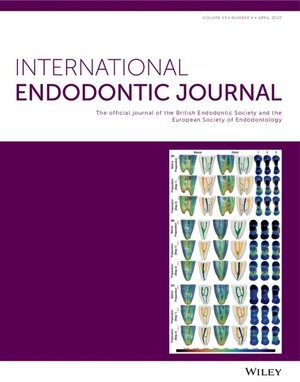To assess the occurrence of external cervical resorption (ECR) in relation to patient characteristics and potential predisposing factors.
In total, 215 ECR lesions (194 patients) referred to the Endodontic postgraduate Unit at King's College London or Specialist Endodontic practice (London, UK) between September 2017 and January 2022. The clinical records were readily accessible for evaluation. At the time of initial presentation, patients diagnosed with ECR were interviewed regarding potential predisposing factors using a checklist based on existing literature of reported predisposing factors. Absolute and relative frequencies for all variables were computed. Inferential analysis was carried out to determine if there was any potential association between the type and location of tooth in the jaw as well as sex, age of the patient and potential predisposing factors.
No identifiable predisposing factor were detected in 22.3% (48/215 teeth) of the cases, 57.7% (124/215 teeth) had a sole, identifiable predisposing factor and 20% (43/215 teeth) had combined (several) factors. The most common (sole or combined) potential predisposing factors were previous/existing history of orthodontic treatment (25.6%, 55/215 teeth), dental trauma injury (DTI) (20.9%, 45/215 teeth), domestic cat ownership (15.8%, 34/215 teeth) and parafunctional habits (10.2%, 22/215 teeth). The highest occurrence of sole predisposing factors was recorded for males (62%, 75/121 teeth), all other ethnic groups combined (non-white) patients (58.5%, 24/41 teeth), incisor teeth (64.4%, 56/87 teeth) and maxillary teeth (62.4%, 68/109 teeth). While the highest occurrence of combined predisposing factors was found in females (22.3%, 21/94 teeth), white patients (20.1%, 35/174 teeth), premolars (29%, 9/31 teeth) and mandibular teeth (21.7%, 23/106 teeth). There were significant associations between tooth type and trauma (p < .001), cat ownership (p = .003) and parafunctional habits (p = .017). The association between trauma (p < .001), cat ownership (p = .002) and jaw location were found to be significant. Concerning parafunctional habits, female patients had significantly (p = .015) more ECR occurrence than male patients.
Most cases had 1 (sole) identified predisposing factor; orthodontic treatment, dental trauma history and (previous) cat ownership were the most identified factors. The information may be helpful in diagnosing early stage ECR.



